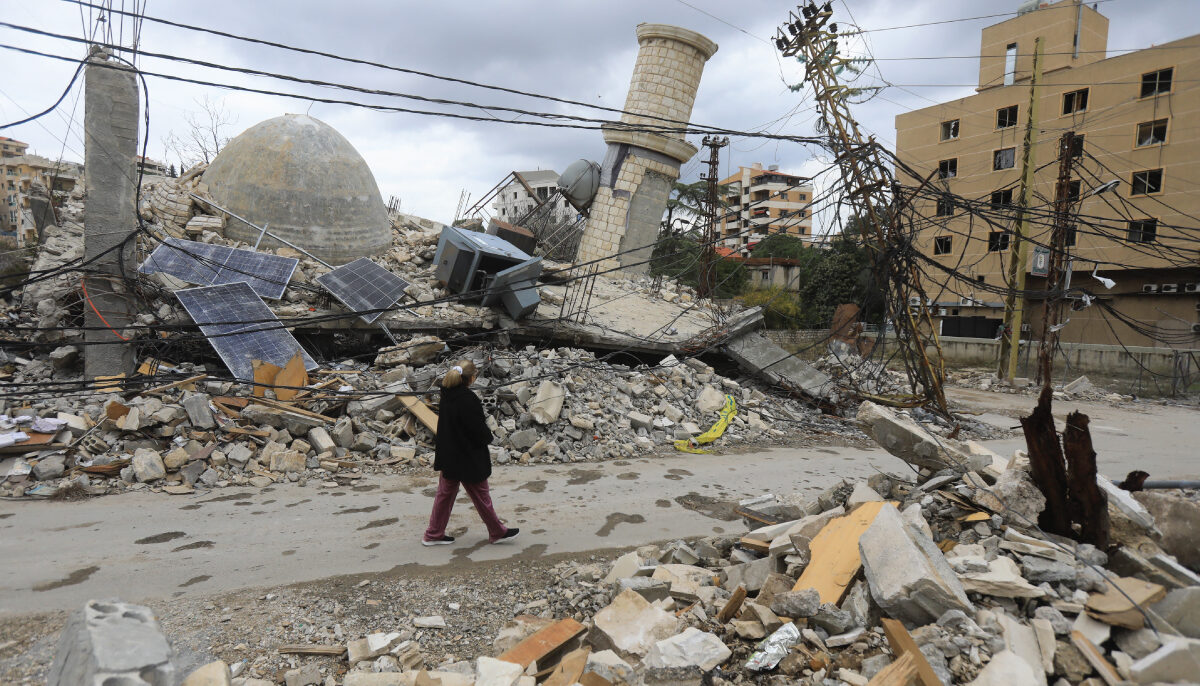Lebanon’s telecom networks, Ogero, touch, and Alfa, suffered damage and losses estimated at around USD 67 million due to the war in Lebanon, as per the estimates of the Ministry of Telecommunications presented at the International Conference in Support of Lebanon’s People and Sovereignty held on October 24, 2024 in Paris. The figures are expected to have risen with the continued Israeli aggressions, which came to an end on November 27.
Lebanese infrastructure sustained significant damage because of the Israeli aggression, which levelled down entire neighborhoods and destroyed the internet and communications networks in many areas of South Lebanon, Bekaa, and Beirut’s southern suburbs.
Now, after the ceasefire agreement, it makes sense to ask whether there is a feasible plan to address sector problems and restore internet and communication networks in affected areas. During the war, the Ministry of Telecommunications didn’t reveal its “mysterious” emergency plan, which was supposed to be in place and implemented. Earlier to devising this plan, research and experience proved the inability of successive Lebanese governments to build and maintain the communications infrastructure.
Post-War Plan
Minister of Telecommunications, Johnny Corm, told SMEX that “Ogero’s losses alone are estimated at around USD 67 million […] and the government is currently undertaking a more detailed survey of damages.”
Imad Kreidieh, director general of Ogero, told SMEX that “Ogero had already submitted a report to the telecommunications minister last October, showing that it incurred 57 million US Dollars in losses, a number which has certainly increased since then.”
Addressing the discrepancy in estimated loss, Kreidieh said he expected the amount disclosed by the minister to include losses of cellular network companies Alfa and touch.
As part of developing a plan to restore the telecom sector, Corm explained that “a survey of all Lebanese territories and a comprehensive assessment of war damages to networks and infrastructure are key.”
He also indicated that maintenance teams have begun fixing minor malfunctions, but are still unable to reach certain stations.
Field mapping showed that Mreijeh station in Beirut sustained the most damage. Work is underway to study the four proposals to restore service to people as fast as possible, and with the lowest cost possible – according to Corm.
For his part, Kreidieh confirmed to SMEX that the first phase of the plan will entail estimating sector losses and repairing minor damages, which would allow restoring the internet and communications network in some areas within weeks. For southern towns and villages that were targeted with Israeli airstrikes and bombs, new telecom networks must be installed, and this could take months.
Ogero’s general director mentioned “alternative plans to provide temporary network coverage in these towns and villages until a sustainable network is established.”
“One option is to use wireless frequencies,” he explained, adding that “Ogero has asked the relevant teams to conduct a comprehensive damage assessment, and this has already begun in Beirut and its southern suburbs.”
“It turns out that actual loss is less than what was projected before the ceasefire, as field mapping showed that stations are still working despite some minor malfunctions that will be quickly fixed. The only exception is the station in Mreijeh, which was completely destroyed.”
Funding Sources
Since 2019, Lebanon has suffered a stifling financial and economic crisis, coupled with the collapse of state finance. This has constituted a major obstacle preventing the government from addressing the repercussions the Israeli aggression had on the telecoms sector.
The government, instead, relies on the promises other countries made at the International Conference in Support of Lebanon’s People and Sovereignty to offer USD 800 million to address the humanitarian crisis and help the displaced.
“It is our duty to fully carry out the detailed mapping we have already launched then present it to the Council of Ministers, which will, in turn, decide how to secure the funds, whether through donors or state budget,” Corm said.
As for Alfa and touch, Corm said that the companies “have insurance against war damages, and will undertake the necessary repairs without the need for funds from the Treasury.”
Kreidieh stated that there are no financial capabilities to address damages to Ogero, and he denied the news circulated that Prime Minister Najib Mikati promised USD 57 million to conduct maintenance works.
To restore the internet and communications network to its pre-aggression status, Corm stated that “Ogero will need some time, especially as it is still conducting damage assessments. As for touch and Alfa, they can install mobile stations.”
He confirmed that as of last Wednesday, the two companies have restored 57 touch and 17 Alfa stations.
Abed Kataya, director of the media program at SMEX, found the absence of a clear and transparent plan to face the repercussions of Israeli aggressions alarming.
“The plan should not be limited to mapping damage, but should clarify the next steps needed to repair malfunctions, the sources of funding, and the timeframe for conducting maintenance and repair work from start to end,” Kataya said.
“The experience of the telecom sector during the war is discouraging,” Kataya warned. “For a whole year, we heard about plans to face challenges in case of aggression expansion, only to realize it was limited to adding a few antennas in areas hosting displaced persons, to improve network coverage.”
“We needed the government to do much more. There should have been an established mechanism to periodically supply stations with fuel, whether through employees or in cooperation with residents or relief organizations and bodies.”
The telecommunications sector undoubtedly sustained significant damages as a result of the latest Israeli aggression on Lebanon. This has posed serious challenges for officials, who now have to restore communication in affected areas, particularly in the South, by repairing the network.
Such actions must no longer be delayed under any pretext or excuse. Will the Ministry of Telecommunications succeed in repairing what the Israeli war on Lebanon has destroyed? Or will we see a scenario similar to that of the ineffective “emergency plan”?
Image by AFP



